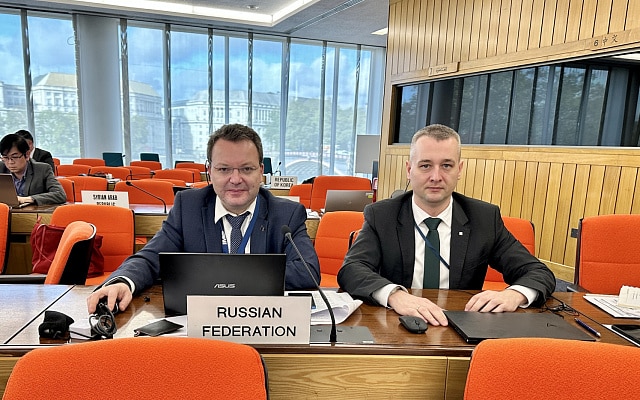RS reflects on the outcomes of the IMO Joint Working Group on Member State Audit

Oleg Chernov, who leads the International Affairs Department of the Russian Maritime Register of Shipping (RS), recently participated in an important meeting with the International Maritime Organization (IMO). This meeting focused on improving the regulations for the IMO Member State Audit Scheme (IMSAS).
Every few years, IMO Member States must undergo audits to ensure they meet maritime safety and environmental standards. So far, over 130 audits have been completed. The Russian Federation successfully passed its most recent audit in September 2024, showing its commitment to these important standards.
The main goal of the IMSAS is to enhance global maritime safety and protect the marine environment. During the audits, the IMSAS checks if a country is fulfilling its responsibilities as a Flag, Port, and Coastal State. This means the audits help ensure that countries are following the rules laid out in the IMO Instruments Implementation Code (III Code, Resolution A.1070(28)), along with other IMO guidelines.
Currently, the Joint Working Group has a crucial job. They are reviewing and updating the procedures and documents that guide the Audit Scheme. This includes the IMO Assembly resolution A.1067(28), which sets the framework for the IMSAS, and the Auditor’s Manual, which is part of the IMO Circular Letter No. 3425. The current version of this resolution has been in place since 2016, making audits mandatory for all IMO Member States.
The group is expected to make significant changes to modernize and improve the Audit Scheme. One key addition is the IMSAS Continuous Monitoring Mechanism (ICMM). This new system will help prioritize audits based on how well a Member State is addressing any previous findings and meeting its obligations. It will also allow for a tailored approach to audits, potentially reducing the need for on-site visits.
Other improvements include using digital technologies for audits and creating clear procedures for remote audits when necessary. The goal is to streamline how information is submitted to the IMO and enhance follow-up audits to check if countries have implemented the required changes.
The group plans to finalize these documents by March 2025 during its 9th meeting. After that, they will be sent to the IMO Council for review. If approved, these updates will be presented at the 34th IMO Assembly in December 2025 for adoption.
RS develops requirements for the safe carriage of industrial personnel
Additional Information:
Founded in 1913, the Russian Maritime Register of Shipping (RS) is a well-respected classification society that works to ensure safety and environmental standards in maritime operations. The RS reviews technical documents, inspects ships and offshore facilities, and certifies vessels and companies to ensure they comply with international rules.
Today, RS is broadening its services beyond just classification. It is offering engineering and consulting services, helping develop technical documents for ships, and conducting marine warranty surveys. RS also ensures that all types of containers, including those for dangerous goods, meet safety regulations. This includes certifying packaging and providing services for declaring and certifying hazardous materials and bulk cargo.
